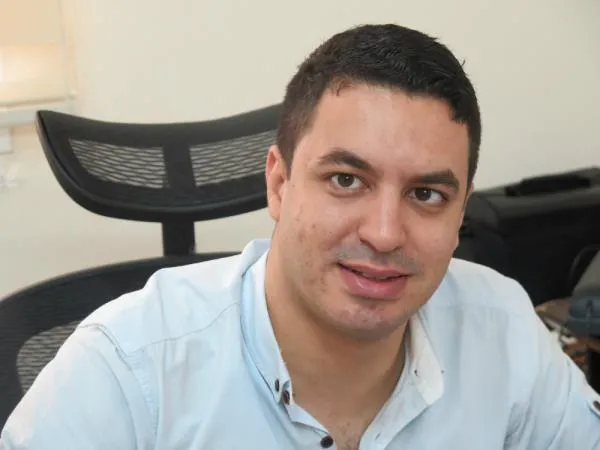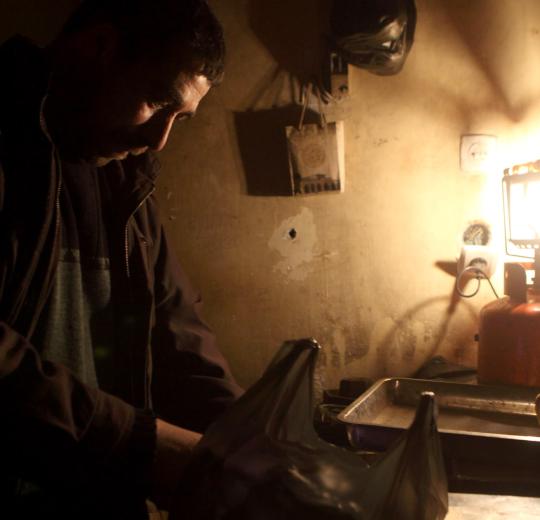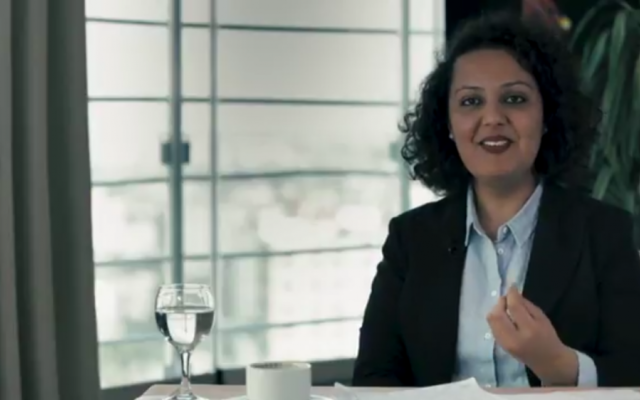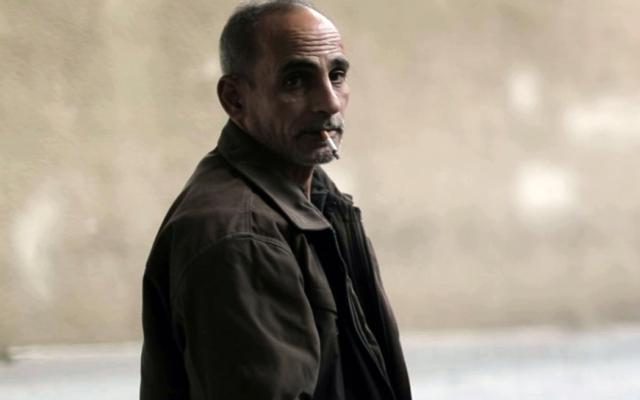
In my apartment building we pay the municipality 40 NIS per flat to get water, but they don't provide us with anything. They can't connect us to the water system because of the blockade. Everyone in the building therefore pays 20 NIS per month to access water from a nearby well, but it is too salty. If you wash a dish, after it dries you can see the salt dried on it. If you take a shower you can feel the salt on your skin.
Where do you get water to drink? Outside of Gaza you use the sink, but in Gaza you can’t drink from the sink. You get water from bottles or buy special filters. People often get sick.
Getting water also requires electricity. A pump takes water from the well to holding tanks under my building. Then, when the power is on, another pump moves the water to tanks on the roof. But if the electricity is on and there isn't enough water in the holding tanks, then you run out of water. I always store 20 or 30 liters of water at home in case we run out. This is now normal life for us.
"I always store 20 or 30 liters of water at home in case we run out. This is now normal life for us."
The electricity crisis has created new businesses in Gaza. There are now battery businesses and LED businesses. Energy efficiency is key. All new products coming on the market need to be energy efficient because they need to work with batteries, generators, and limited electricity.
Life is shaped by the electricity crisis. If there is power from 3 p.m. to 10 p.m. today, there won't be tomorrow. When there is power in the afternoon, I go home and do work. I do laundry and anything else. When the power is off in the afternoon, I don't go home. I won't go home until it is on because at home I will just sit in the dark. I live on the 11th floor of my building, and I can't do anything there without electricity.




